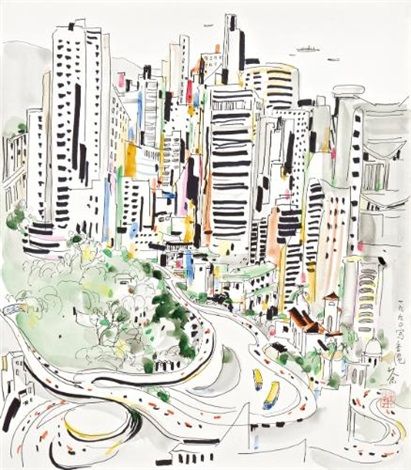Plans for an infrastructure conference

A listening dialogue on infrastructure
Like any good art project, this idea has been percolating in my mind for a while now. A side project related but very different from my day-to-day. I propose hosting a day-long listening dialogue on the role of infrastructure across disciplines.
This gathering would bring together practitioners to uncover patterns of infrastructure typically subject to the background. The prompt is simple: What does infrastructure mean in your discipline, and what might be ways to reimagine it? From physical & digital city-building to science fiction, computation & software to conflict negotiation, public health to mechanical/electrical and even incentive design, the intent is for similarities to be exposed across diverse disciplines, so that guests will leave with new ways to frame their own activities.
There is so much to be shared on the learnings of infrastructure. How long to deal with the kludge? Should we improve an existing paradigm or replace it completely? Do we create new names or use our old ones? How do we best guide the producers and appropriators of the system? Rather than siloing lessons in one field, or scrambling for solutions solved elsewhere, we can simply share ideas across fields. This dialogue is missing today. Can a social media advisor learn from a building controls engineer? Can a machine learning researcher learn from a public defender? The response is Yes.
So– what’s a listening dialogue? (I just made it up!) The idea is to have 2 concentric circles of participants— producers and appropriators. Producers, a small set of about 10 speakers, engage with each other on stage, sharing their own disciplines through a variety of formats (more below) with space set aside to communally connect the dots later on. In producing this collection of patterns, critical is the focus on one’s own background. As Michael Nielsen advises Katherine Ye for a parallel event [1], there’s a reason the distinction of disciplines exists; depth overcomes breadth. Appropriators, the listening attendees in this case (an estimated 100 of them), watch, listen, and capture as the dialogue unfolds. They engage with each other on the outskirts, during the breaks, after the talks. They consume new frameworks, with some ideas converting into new inputs for their own disciplines.
This proposed listening dialogue is inspired by formats explored over the years by other thoughtful groups. It’s as much an experiment in events as an experiment in infrastructure. The day begins with an immersion experience to build common ground (inspired by a worldbuilding exercise NK Jesmin leads Ezra Klein through on his podcast). The morning sessions are influenced by a lecture series on the theme “Management and the Computer of the Future” held to commemorate MIT’s centennial. In 1961, speakers like Jay Forrester and Herbert Simon submitted informal papers to be shared ahead of time with two discussants. The speaker presents first. Then the discussants, like Grace Hopper and JCR Licklider, share remarks reflecting on the speaker’s work, prepared and stimulated by the current conversation. The ready yet real-time nature of these discussions is useful when trying to relate different backgrounds. Reserved for the afternoon is a “conversational relay,” a format inspired by the Long Now in which the day’s speakers are invited to publicly connect the dots with one another 1:1, switching thought partners every 15 minutes.
A residual goal for the event is to transcribe the day’s conversations into a series of essays much like the proceedings of the Macy Conferences on Cybernetics. (The MIT lectures were also transcribed into a book: “Computers and the world of the future” by organizer Martin Greenberger.) This is a kind of second-order art project. By transcribing the events into text (not just instant capture video or podcast), my goal is to more deeply preserve and share these patterns of infrastructure, so that common learnings can be used again, not wasted
—
